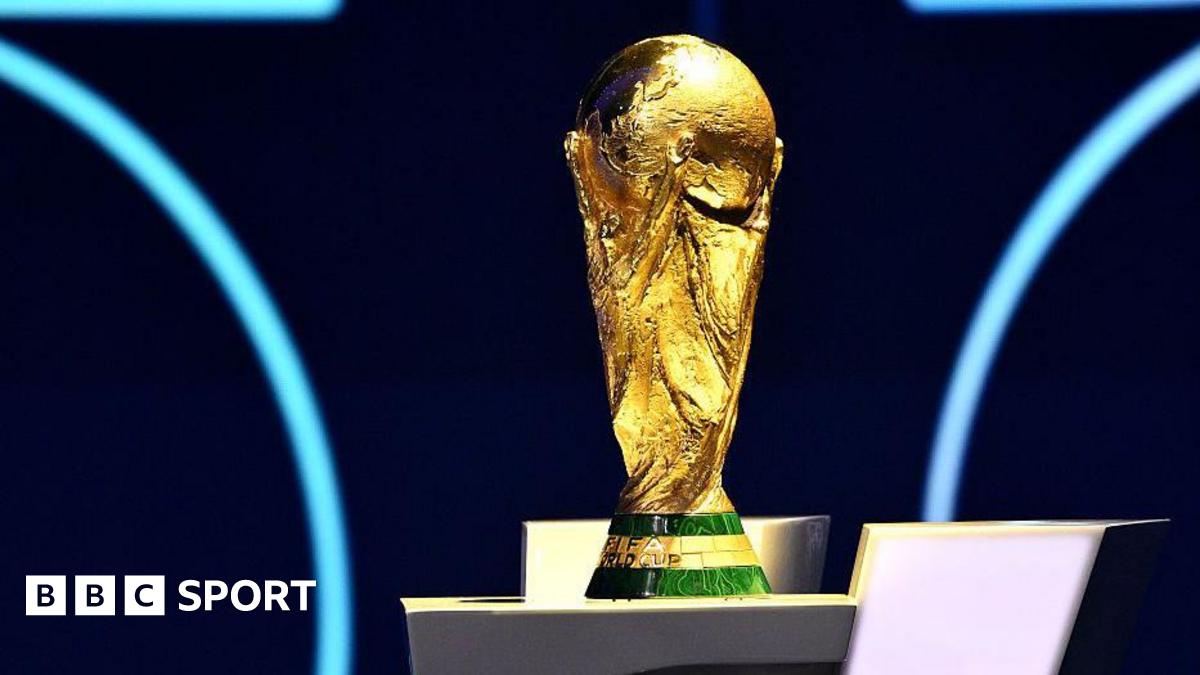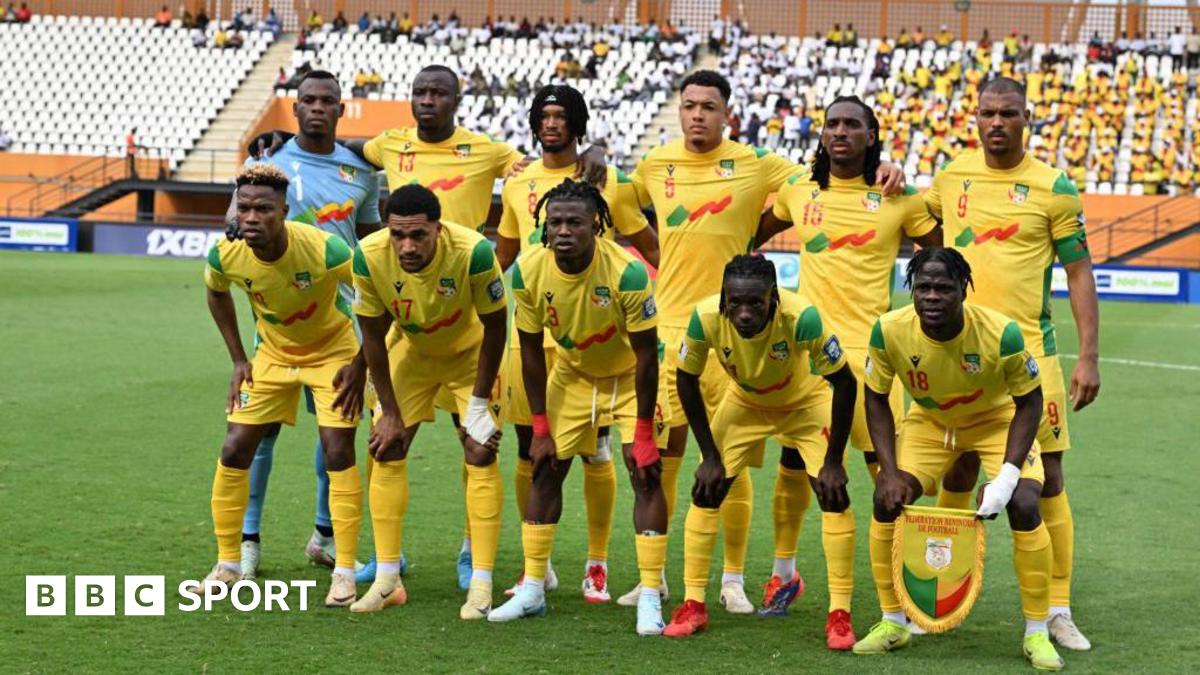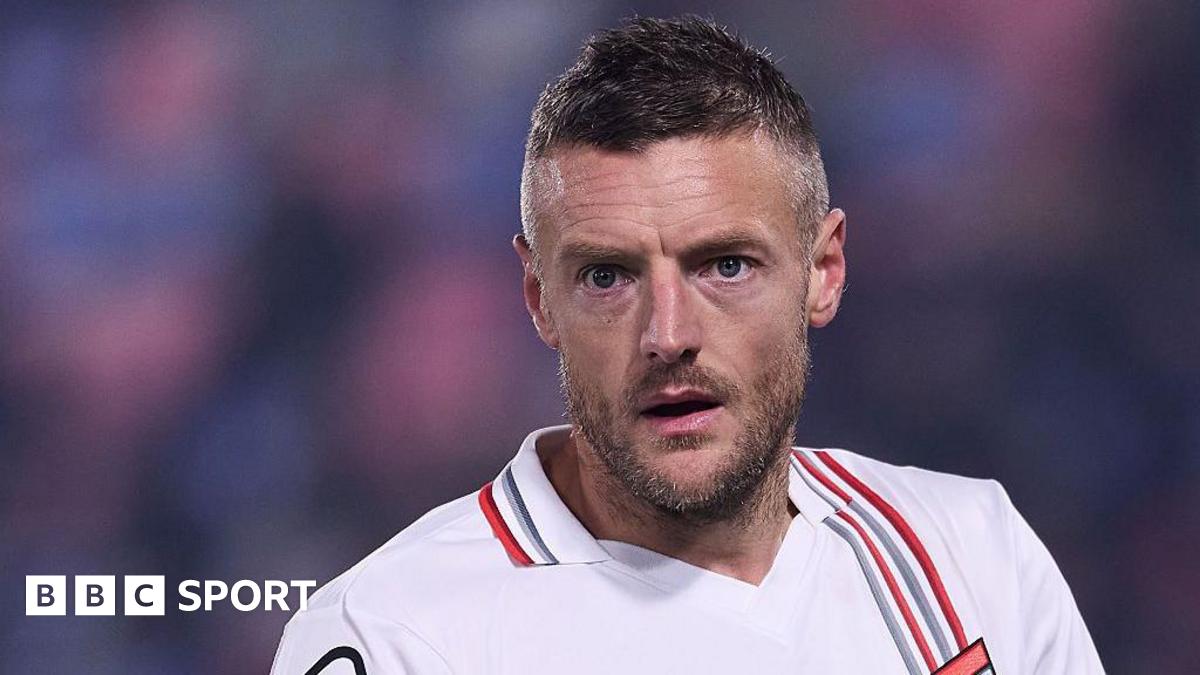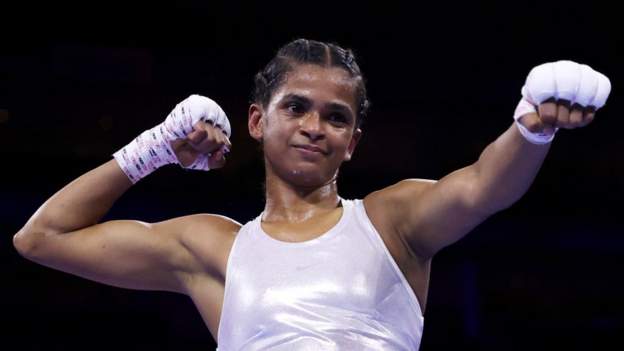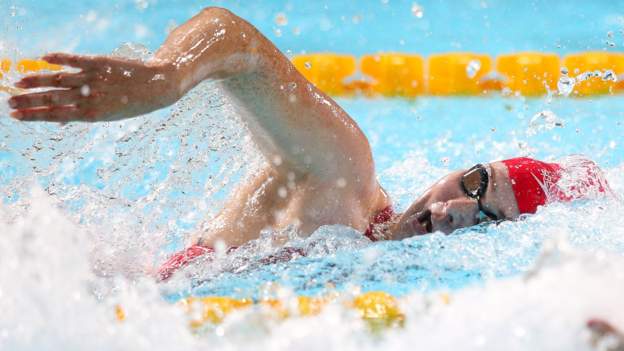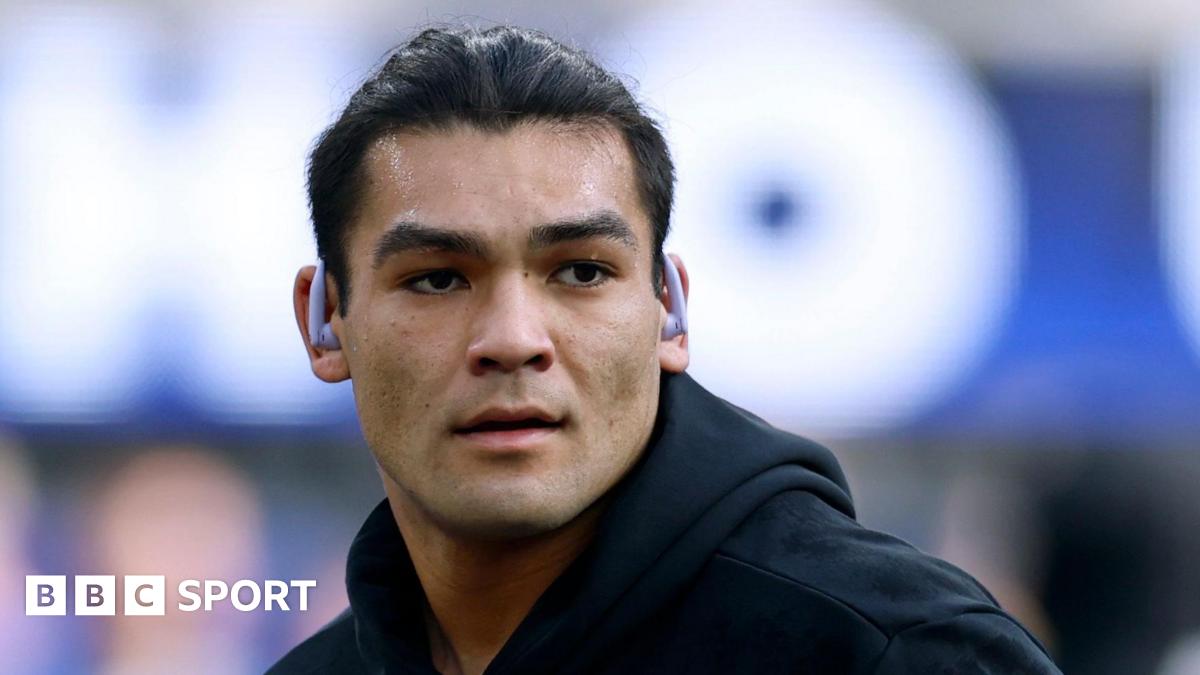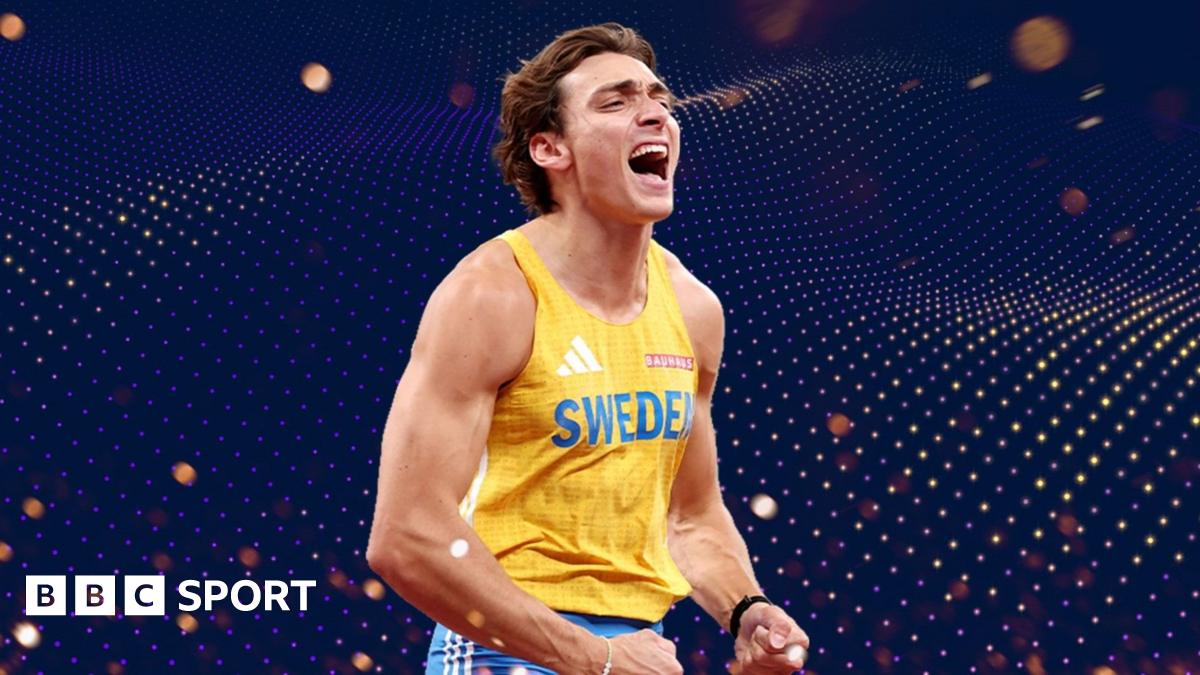| Venue: King Abdullah Sports City, Saudi Arabia Date: Saturday, 20 August |
| Coverage: Follow live text commentary and reaction on BBC Sport website & app from 21:00 BST. |
Thunderous chants of “Ali, Ali, Ali” from a boisterous crowd reverberated around the O2 Arena when Ramla Ali continued her unbeaten professional boxing career last month.
It was a sight, and sound, to behold.
“The amazing thing about the Somali community is that they back each other – they back their own,” Ali tells BBC Sport.
“I only had to put out the flyer and within 72 hours I’d sold 500 tickets. It was insane.”
The 32-year-old is still a novice professional, but her huge following is testament to her achievements both in and outside the sport.
Ali’s journey has taken her from a child refugee who fled war-torn Somalia to becoming the first Muslim fighter to win an English title as an amateur.
She is an Olympian, activist, author and successful model who was handpicked by Meghan Markle to be on the cover of Vogue.
Her backstory is not just worthy of a feature film – the biopic is already in production.
This week in Jeddah, Ali will make history once more when she features on the undercard of Oleksandr Usyk v Anthony Joshua in the first professional female bout to take place in Saudi Arabia.
“It’s a huge honour,” she says. “This is a one-time thing. No-one else will be the first, and for myself and for my opponent, both our names will be cemented in history. It’s an incredible feeling.”
‘This isn’t a gimmick – Saudi are trying to change’
Ali’s decision to fight in Saudi Arabia has drawn criticism, with some social media followers citing the country’s poor human rights records and treatment of women.
“There will be some mean comments,” Ali says. “They have already begun. Why would you choose to box in Saudi Arabia? They violate women’s rights, etc.”
Saudi Arabia has faced accusations of human rights violations and is currently launching a military operation in Yemen that has caused a humanitarian crisis.
The Kingdom has spent billions to bring elite sport to its country, which critics have labelled as ‘sportswashing’.
“Riyadh’s calculation is that sport is going to gradually relax people talking about executions, jailing, murdering of journalists and bombing in Yemen as the big story about Saudi Arabia,” Felix Jakens, a spokesperson for Amnesty UK, told BBC Sport.
Ali’s long list of charity work includes setting up The Sisters Club – an organisation which teaches Muslim women, minorities and those who have suffered domestic or sexual violence how to box.
The super-bantamweight – who will face Crystal Garcia Nova from the Dominican Republic in Jeddah – says the Saudi royal family requested the fight and believes it demonstrates that “progress” is being made.
“You can’t fault a country who are trying to make change,” she adds. “This isn’t just a gimmick of ‘let’s stick on women’ and whatever.
“If I am trying to fight for women’s rights, why wouldn’t I support a country who is trying to make change, who is trying to change women’s rights.”
The refugee who won fights & won over mum
All boxers experience highs and lows over their career, but you’ll be stretched to find any fighter more prepared to overcome a setback.
Ali’s elder brother was killed by a mortar, aged 12, in Somalia during the civil war in the early 1990s. Her family managed to escape the capital Mogadishu. After a nine-day boat journey to Kenya, in which some of those on board died of starvation, they eventually found refuge in London.
In her early teens Ali was bullied at school for being overweight, so went to the local gym and tried a boxercise class, but did not tell her family as she thought they would disapprove of the sport for a Muslim girl.
She began to immerse herself in boxing, learning through videos online, before securing a first amateur bout around 2010. Her family were still unaware, though her brother – who had been helping her to sneak out to train – was the exception.
Soon enough, she was representing her new country. Unbeknown to her mother, she won amateur English and British titles.
When her mother found out, she asked her to stop.
In time, Ali began to win her over. “A couple years ago we had a sort of turning point,” she explains.
“I got a phone call from her to wish me good luck in the tournament that I was going to in Denmark.
“It was honestly the best feeling in the world, knowing that somebody that I love so much has taken an interest in something that I love so much.
“She’s so supportive now. She hasn’t watched me compete live – she will wait until the next day to watch it on YouTube.”
From fight night to Mecca
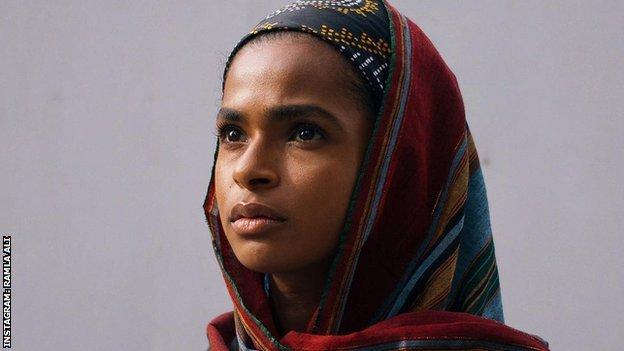
As an amateur, Ali switched allegiance from England to her country of birth. Last year the trailblazer was Somalia’s flagbearer at the Tokyo Games, and became the first boxer to represent the nation at an Olympics.
“It was one of my proudest moments of my life,” she says. “No-one can ever take that away from me because I’m the 0.001% of the world’s population that can call themselves an Olympian.”
While in Saudi Arabia, Ali – a devout Muslim – plans to make the one-hour car journey from Jeddah to perform Umrah, a pilgrimage to the holy city of Mecca.
“I’ve always said that my faith is so important to me. If you’ve ever seen me weigh in, I always wear leggings and a vest, even if it does add a pound or two to the scales,” she says.
“I’ve always wanted to do either Umrah or Hajj and it’s always been quite expensive, but I’m there now so why wouldn’t I?
“Grab this opportunity with both hands – I’m already there. I am going to do it either on fight week to find a bit of peace and it will help me relax, or do it after the fight which will be a victory so which will be a celebration.”
‘I want my face to be everywhere’
Ali’s self-help book which documents her inspiring story was released last year, while Bafta award-winning producer Lee Magiday is set to make a film about her life.
Her modelling career has reached great heights, and she is a brand ambassador for high-end fashion labels.
Ramla does not feel the numerous vocations are a distraction to her boxing career. To the contrary, she says the modelling work benefits world-title aspirations.
“Let’s be honest, women don’t get paid nearly enough to be full-time athletes, and because I do this other stuff it allows me to be a full-time athlete,” she says.
“It allows me to train full-time. It gives me the opportunity to move myself and base myself out of Los Angeles, to work with world-class coaches.
“Modelling, the fashion world, is so incredibly supportive. There will be times where as a boxer I’m not always on weight. My weight is fluctuating and I’ll turn up to a shoot not being able to fit into something.
“They’re so accommodating. If something doesn’t fit they will find something else that does, or if I’m not comfortable wearing something they’ll find something I am comfortable with.”
Ali stresses that boxing will always be her priority and biggest passion, but there is no suggestion of slowing down the work-rate.
“I jokingly said to a friend ages ago that I want my face to be everywhere – that people get sick of it,” she says.
“And that is probably the dream. To have done so much, not only in the ring but out the ring, that people say ‘oh my God, not her again’.”
The feature-length biopic may need a sequel.






